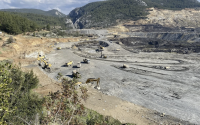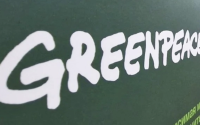Antony Barnett and Mark Townsend28 November 2004
Climate change is 'a myth', sea levels are not rising and Britain's chief scientist is 'an embarrassment' for believing catastrophe is inevitable. These are the controversial views of a new London-based think-tank that will publish a report tomorrow attacking the apocalyptic view that man-made greenhouse gases will destroy the planet.
The International Policy Network will publish its long-awaited study, claiming that the science warning of an environmental disaster caused by climate change is 'fatally flawed'. It will state that previous predictions of changes in sea level of a metre over the next 100 years were overestimates.
Instead, the report will say that sea level rises will reach a maximum of just 20cms during the next century, adding that global warming could, in fact, benefit mankind by increasing fish stocks.
The report's views closely mirror those held by many of President George Bush's senior advisers, who have been accused of derailing attempts to reach international agreement over how to prevent climate change.
The report is set to cause controversy. The network, which has links with some of the President's advisers, has received cash donations from the US oil giant ExxonMobil, which has long lobbied against the climate change agenda. Exxon lists the donation as part of its 'climate change outreach' programme.
Environmentalists yesterday said the network report was an attempt by American neo-conservatives to sabotage the Prime Minister's attempts to lead the world in tackling climate change.
Last week, the network's director Julian Morris attacked Britain's highly respected chief scientist. 'David King is an embarrassment to himself and an embarrassment to his country.' He criticised preparations by Tony Blair to use his presidency of the world's most powerful nations next year to lead attempts in tackling climate change.
Morris described Blair's plans to use his G8 tenure to halt global warming as 'offensive'. Bush is understood to have objected to Blair placing the issue at the top of the agenda and to the robust tone of his recent speeches on climate change.
Blair, however, has garnered considerable international support for describing the issue as 'the single, biggest long-term issue' facing the world. According to the network, however, his passion on the matter is not shared by the British public. A poll it commissioned claims six out of 10 Britons believe Blair should not implement the Kyoto protocol if it will harm the economy.
The executive director of the environment group Greenpeace, Stephen Tindale, said: 'We've been watching how the network employs the same tactics as Washington neo-cons, now we know they employ some of the same people as well.
'For years, the tobacco companies blocked action on smoking by sowing doubt about the science. Esso and its friends have done the same thing in the US on climate change and now they're busy in Britain. Global warming is the biggest threat we face, the science is certain.'
Environmentalists believe this week's report will provoke a similar storm to that inspired by Danish statistician Bjorn Lomborg, who maintains climate change is not the greatest threat facing mankind and resources should be spent on more pressing issues, such as tackling HIV.
Tomorrow's findings echo a number of Lomborg's themes, as well as maintaining that 'extreme weather' is more likely caused by a natural cycle rather than man-made. It also challenges assumptions that climate change will lead to a rise in malaria along with more positive effects, such as increasing fish stocks in the north Atlantic and reducing the incidence of temperature-related deaths among vulnerable people.
Morris admitted receiving money from a number of companies, including $50,000 from Exxon, but denied the organisation was a front for neo-conservative opinion. 'I have written about these issues for many years. If a company wants to provide money, then I'd be happy to accept it.'
He added that his $1 million budget is small compared to those of international groups, such as Greenpeace and Friends of the Earth.






